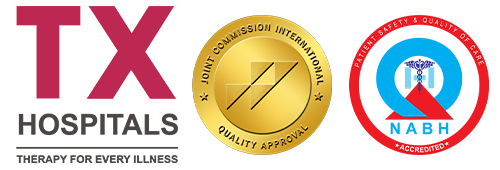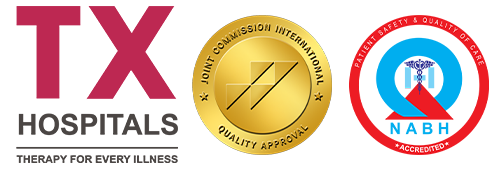Myocardial Infarction Treatment in Hyderabad
Myocardial infarction is commonly called as ‘heart attack’. Like all muscles of the body, the muscles in the heart require constant supply of oxygen and nutrients for their functioning. Myocardial infarction refers to the necrosis or irreversible death of muscles in the heart, owing to ischemia or prolonged lack of oxygen supply to heart muscles. Oxygenated blood is provided to the heart by two large arteries. In a myocardial infarction, blood flow into the blood vessels of the heart would be cut off suddenly.
This can be attributed to the sudden rupture of blood clots in coronary arteries, which have plaque depositions that are fatty and calcified.
Symptoms
Symptoms of a heart attack include:
- Sweating, nausea, vomit and dizziness
- Extreme weakness and shortness of breath
- Rapid or irregular heartbeats
- Discomfort, pressure, heaviness, or pain in the chest, arm, or below the breastbone
- Discomfort radiating to the back, jaw, throat, or arm
- Fullness, indigestion, or choking feeling, may feel like heartburn
Usually, during a heart attack, symptoms last for thirty minutes or longer. The symptoms are not relieved by taking rest or by having nitroglycerin under the tongue. Some people might also have a silent myocardial infarction or a heart attack without symptoms. This is more common in people with diabetes.
Causes
Exertion, excitement, and stress may act as major causes and act as triggers for a myocardial infarction. Factors, though, are well-known, and some can be controlled. Of these, the main ones are:
- Obesity
- Diabetes
- High blood pressure
- High cholesterol
Risks
High risk factors, though, are well-known, and some can be controlled. Of these, the main ones are:
- Smoking
- Sedentary lifestyle
- Family history of heart disease
- Postmenopausal women
- Men over age of 50
Prevention
If you have had a heart attack, recovering from it would take lifestyle and psychological adjustments which should be adopted for a long time. To keep your heart healthy, you have to:
- Quit smoking
- Avoid excessive consumption of alcohol
- Avoid consumption of oily and fatty food
- Be active and exercise moderately, on a regular basis
- Have a healthy and balanced diet







